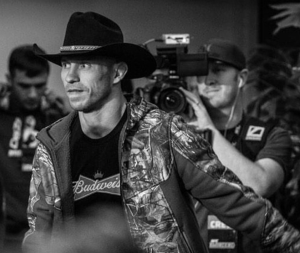As the fable goes, the hare and the tortoise race. The hare takes off leaving the turtle in the dust only to get a little complacent, a little tired and takes a nap. He wakes up and to his great surprise the tortoise is ahead of him and slowly and steadily crosses the finish line before the furry speedster.
I’ve almost always heard this fable connected to personal character issues of not resting on talent alone. Or within business, to move methodically and steadily to your goals without distraction.
But I recently thought of this fable when reading about Schlitz beer.
Huh!?
It’ll make sense in a second…
I picked up, David Aaker‘s latest book, Aaker On Branding. Aaker is a statesman within the brand building community, and you can’t go wrong with anything he writes. Anyway, it’s not long into the book before he shares the story of Schlitz beer’s fall from grace in the mid-1970’s.
“…Schlitz, the “Gusto” beer, was a close number two behind Budweiser when the firm decided to cut costs by using a yeast-centered brewing process, which cut the processing time from twelve to four days, and by replacing the barley malt with corn syrup. Blind taste tests showed that the taste did not change. However, competitors were only too glad to talk about Schlitzes’ efforts to reduce costs. Their suggestion that Schlitz had compromised quality became very real when it turned out that the beer, after sitting on the shelf, would turn cloudy and lose carbonation. Schlitz returned to its old production method and ran blind taste tests during the Super Bowl to prove the quality was back, but customers had lost confidence in the brand and the thought of finding ‘gusto’ by drinking Schlitz became a joke. The brand damage led to its virtual disappearance from the market and caused the business to lose more than one billion dollars in value.” pp. 16-17
It’s easy to armchair quarterback and pick on the executive team that allowed this to happen, but put yourself in their shoes. As an executive, one of your biggest responsibilities, not to mention a primary way to advance your career, is to increase profit and return value to shareholders. Someone comes to you with a “brilliant” idea for how to introduce significant savings into the supply chain AND not sacrifice taste, sounds like a win-win.
If you were one of the decision makers, why would you say “no” to this? What would provide some level of guidance to suggest that you NOT say “yes”?
Answer?
The slow and steady, long-term strategy of the brand—the values and attributes that made Schlitz… Schlitz.
If you as a Schlitz executive, didn’t have a clear picture of that guiding conscience for the brand, you would be just as beholden to the fast buck, “brilliant” idea as those 1970’s executives.
Allow me to demonstrate with one other example. Starbucks. You’ve undoubtedly heard of the famous Howard Schultz memo, castigating the then current Starbucks leadership on losing the slow and steady, soul of the company. It was the events surrounding that memo that eventually led Howard to step back in and retake the reins of the Seattle Siren.
Here are a couple key quotes from that 2007 memo titled The Commoditization of the Starbucks Experience.
“When we went to automatic espresso machines, we solved a major problem in terms of speed of service and efficiency. At the same time, we overlooked the fact that we would remove much of the romance and theatre that was in play… Clearly we have had to streamline store design to gain efficiencies of scale… [but] one of the results has been stores that no longer have the soul of the past… I have said for 20 years that our success is not an entitlement, and now it’s proving to be a reality… Let’s get back to the core.” (Onward, pp 24-25)
Every business faces the lure of trying to grow and increase profits quickly. Here’s the challenge. What may look like a great business decision, with immediate short-term benefits, could be shortening your organization’s lifespan.
It’s been my experience that few large companies have their brand values or attributes (called different things by different people) clearly defined. And if they are, they are stuck in the marketing department and not used by all leaders as a filter for business decisions. This is a huge mistake.
But I have found that it’s even more rare to see a small to mid-size business have these attributes defined and leveraged effectively.
If you’re a business leader or an entrepreneur just starting out, do you know what your “core” is? Do you know what your brand’s values and attributes are? Would you know how to avoid the quick buck trap and stay the course, with a slow and steady brand strategy?
If not, I can help.



 I’m willing to bet Budweiser gets more strategic bang for its buck, through their sponsorship of this gritty, tough, brash, rural, gutsy, no-nonsense, American rebel.
I’m willing to bet Budweiser gets more strategic bang for its buck, through their sponsorship of this gritty, tough, brash, rural, gutsy, no-nonsense, American rebel.